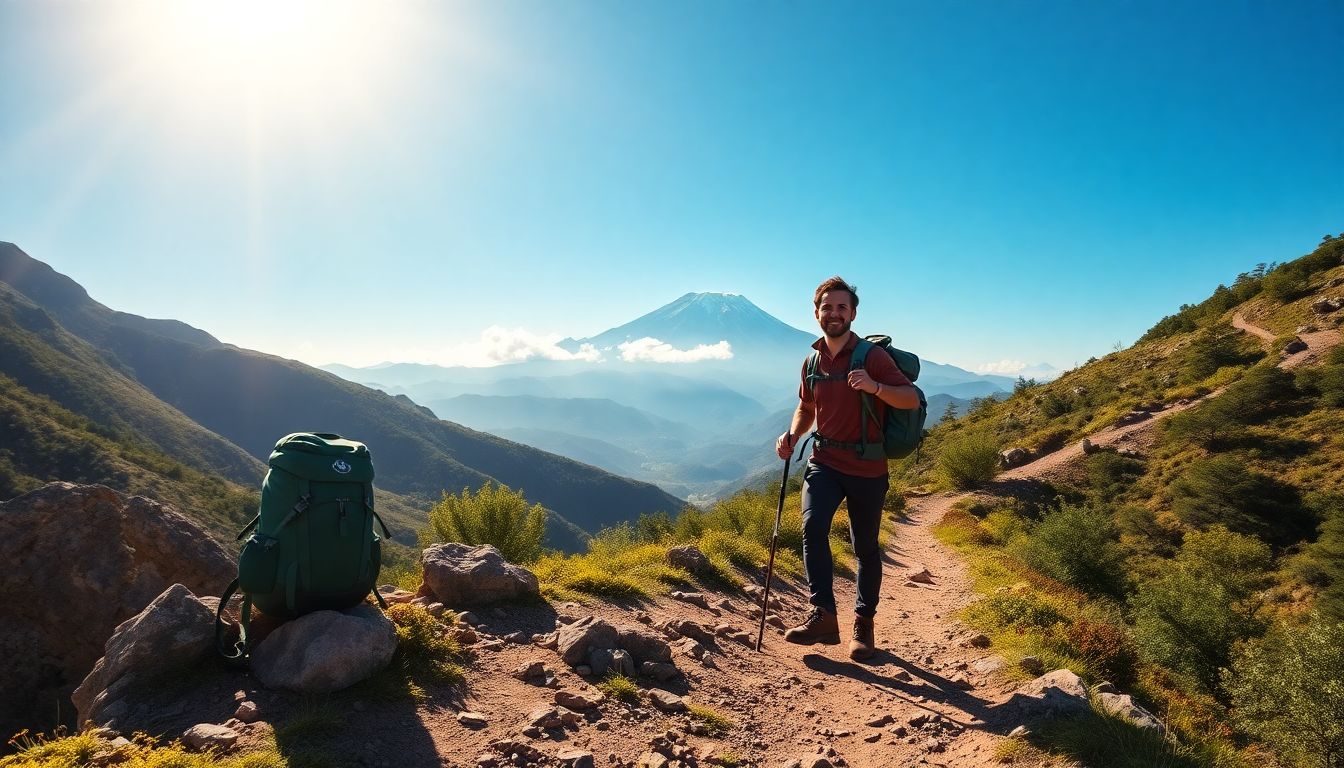
Conquer Your First Atlas Mountain Hike: A Beginner's Guide
Embarking on a hike in the Atlas Mountains offers an experience unlike any other. These majestic peaks present stunning views, rich culture, and unforgettable memories. Whether you're looking for a peaceful walk or a more challenging trek, preparing correctly can make all the difference.
The Allure of the Atlas Mountains
The Atlas Mountains stretch across Morocco, Algeria, and Tunisia, showcasing diverse landscapes. From rocky paths to lush valleys, there's something for every nature lover. The mountains are not just about beauty; they also hold a deep cultural significance with various traditional Berber villages dotting the region.
Why Choose Your First Hike in the Atlas?
Choosing the Atlas for your first hike means stepping into a world rich in breathtaking scenery. The trails range from easy strolls to more rigorous climbs, allowing beginners to build confidence. Plus, the hospitable locals are always ready to share their knowledge and stories.
What to Expect on Your First Atlas Hike
Expect to encounter a variety of terrains, including steep climbs, rocky paths, and serene valleys. Wildlife and plant life are abundant, making it a picturesque and immersive experience. Adequate preparation will ensure you can fully enjoy the beauty without feeling overwhelmed.
Essential Gear for Your Atlas Mountain Trek
Proper gear is crucial for a safe and enjoyable hike in the Atlas Mountains.
Packing List: Clothing and Footwear
Layering for Variable Conditions: Weather can change quickly. Dress in layers for flexibility. Start with a moisture-wicking base layer, add an insulating layer, and finish with a waterproof jacket.
Choosing Appropriate Hiking Boots: Invest in sturdy, comfortable hiking boots. Look for supportive soles and good traction to navigate the rocky terrain.
Essential Equipment: Navigation and Safety
Maps, Compass, and GPS Devices: Always have a physical map and a compass. GPS apps can assist, but they rely on battery life and signal.
First-Aid Kit and Emergency Supplies: Carry a small first-aid kit with essentials like band-aids, antiseptic wipes, and pain relief.
Hydration and Nutrition Essentials
Backpack Selection and Water Capacity: A daypack should hold 2-3 liters of water. Look for one with an internal hydration reservoir if possible.
High-Energy Snacks for the Trail: Bring natural snacks like nuts, dried fruits, or energy bars to keep your energy up.
Planning Your Route and Itinerary
Planning is key for a smooth hiking experience.
Choosing the Right Trail for Beginners
Difficulty Levels and Trail Lengths: Research trails rated for beginners. Look for shorter distances with moderate elevation changes.
Researching Popular Hiking Routes in the Atlas: Online forums and hiking websites often offer valuable insights into the best beginner trails in the Atlas region.
Obtaining Necessary Permits and Information
Contacting Local Guides and Tour Operators: Local guides can enhance your hike experience by sharing their knowledge about the area.
Checking Weather Forecasts and Trail Conditions: Always check the weather before you leave. Trail conditions can change dramatically, impacting safety.
Creating a Realistic Itinerary
Planning for Breaks and Rest Stops: Factor in time for breaks and enjoy the views. Listen to your body and don’t rush.
Accounting for Potential Delays: Allow for extra time in your schedule. Things might not always go as planned.
Acclimatizing to Altitude and Staying Safe
Safety is paramount when hiking in elevated areas.
Understanding Altitude Sickness
Symptoms and Prevention Strategies: Headaches and dizziness are common at high altitudes. Ascend gradually and stay hydrated.
Gradual Ascent and Hydration: Plan your ascent to give your body time to adjust. Drink plenty of water throughout your hike.
Essential Safety Precautions
Hiking with a Partner or Group: Always hike with a buddy, especially as a beginner. It’s safer and more enjoyable.
Informing Others of Your Itinerary: Let someone know your plan. That way, they can alert authorities if you're late.
Navigating Challenging Terrain
Stick to Marked Trails: Always follow marked paths to avoid getting lost and to protect natural habitats.
Respect Local Wildlife: Observe animals from a distance. Do not feed or approach them.
Mastering Essential Hiking Techniques
Learning basic hiking skills helps you navigate effectively.
Proper Hiking Posture and Pace
Efficient Energy Conservation: Maintain a steady pace. Take breaks to catch your breath.
Maintaining Momentum and Stamina: Keep a good rhythm. Find what pace works best for you.
Navigating Varied Terrain
Ascending and Descending Safely: Use poles if needed. Bend your knees slightly on descents for better balance.
Crossing Streams and Rivers: Look for shallow spots to cross. Always test the ground with a foot before stepping on it.
Essential Navigation Skills
Using a Map and Compass Effectively: Learn basic navigation skills. Practice using a map and compass before you go.
Utilizing GPS Devices: Don’t solely rely on technology. Have a backup navigation option.
Post-Hike Recovery and Reflections
After your hike, prioritize recovery.
Rest and Rehydration Strategies
Importance of Rest After a Hike: Give your body time to recover. Lay down and relax when you can.
Replenishing Electrolytes: Consider drinks or snacks to help restore lost minerals.
Reflecting on Your Experience
- Lessons Learned and Future Planning: Think about what went well and what you could improve for next time.
Sharing Your Adventure
- Documenting Your Journey: Share photos and stories with friends and family. This creates lasting memories.
Conclusion: Your Journey to the Summit Awaits
Preparing for your first hike in the Atlas is an exciting journey. Remember to gather the right gear, plan your trail, and follow safety tips. Your adventure awaits, and each step will bring new discoveries.
Key Takeaways and Actionable Steps
- Choose beginner-friendly trails.
- Invest in good gear.
- Always prioritize safety.
Inspiring Words and Encouragement
Every great adventure begins with a single step. Don't hesitate to embrace the thrill of hiking.
Resources for Future Adventures
Look for local hiking guides or blogs for more tips and suggestions to discover new trails. Enjoy your hike and happy exploring!




